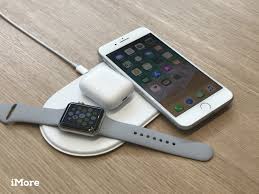Wireless charging has been around for a good few years and has gained more and more popularity. Along with Apple’s getting in on the scene last year; with its flagship iPhone X coming with the wireless charging capabilities, it’s fair to say this capability has really taken off. But have you ever wondered what makes wireless charging so popular? will it take over from the more traditional wired method and become the one to use from now on?

The reasons why wireless will be preferred or is preferred to wireless charging includes:-
- You don’t need to fiddle with cables compared with wired charging. Just imagine the situation where you don’t need to plug and unplug a cable every time you need to charge your phone, simply drop your phone on the charging pad and it starts charging without doing anything else. Everything looks elegant and neat; you don’t need to worry about where you left your cable, or charger for that matter. Having said that, it doesn’t mean that all the wires have gone, you still need a wire for your charging base to be connected with the power supply.
- It reduces the wear and tear on your device. As i mentioned earlier, wireless charging doesn’t need cables, which means there’s no need for a USB port anymore which removes the strain on the cable, the charging plug and the phone’s USB/Lightening port. Furthermore, it enables manufacturers to improve the performance of your device by making them completely waterproof and dust-proof, making them easier to maintain.
- It enables multiple smartphones to charge simultaneously instead of taking all kinds of cables with you. If you travel a lot and you have several different phones, for example, an Apple iPhone and an Android smartphone, you will be familiar with the fact that you will also need to carry both a micro USB cable and a lightening cable with you as well as a few chargers to power them when you run out of battery. However, if all of these smartphones are wireless charging enabled, a wireless charging pad becomes the “One size fits all” solution. Fortunately, cell phones and chargers from different manufacturers are compatible so one pad can keep all your phones topped up with power.
- It provides a safer way to transfer power to your phone, which avoids putting your personal safety and data at risk. Unlike plugging in a device, wireless charging transmits power without actually touching any exposed electrical connectors. In another sense, this reduces the chance of a connection failure and electric shocks. Shockingly, several many injuries and even death has been linked to improper use of cables or cellphones while charging. Wireless charging can be safer because as soon as you pick it up the charging stops. There is also a lesser-known risk associated with “plugging in to public US chargers”. These free USB public charging hubs can send and receive data while you are not aware of it, which is yet another reason why wireless charging is better.
- Lastly, it looks so much better. Yes, no obvious wires means that wireless charging looks cleaner when compared to the mess of charging cables. Clearly, wireless charging gives you a much cleaner look when compared with traditional cable charging. However, there are some drawbacks of wireless charging, but with time, just like every other technological device, but i am sure these will be improved on with more advancement.
Despite the beautiful and amazing advantages of wireless charging, there are still some minor drawbacks.
- Wireless charging is slower and less efficient than wired charging. Overtime, it has been researched that a Samsung Galaxy S6 can charge from zero percent to 100 percent battery power in 1 hrs 48 mins when charged over a wireless connection. Whereas, wireless charging takes 3hours, twice as long as the wired charging solution. They also found that as wireless charging takes more time to top up your phone, it will take more power to completely charge your phone too.
- Wireless charging usually makes your phone overheat which can harm your battery. There are many discussions around whether or not wireless charger heat harms your battery amongst those who have started charging their phones wirelessly. According to How-To-Geek, wireless charging usually generates a bit of waste heat and compared to the conventional cable charging. Some of that wasted power will be in the form of excess heat and the heat will translate to more wear and tear on the battery.
How does the overheating caused by wireless charging damage your battery?
It is well known that the best rechargeable batteries on the market, generally, are lithium-ion batteries. But what you might not be aware of is that these batteries have limits when it comes to overheating. The heat will speed up the aging of your battery every time your phone attery gets exposed to high temperature. But we seldom hear about phones having this problem when charged with a wired charger.





